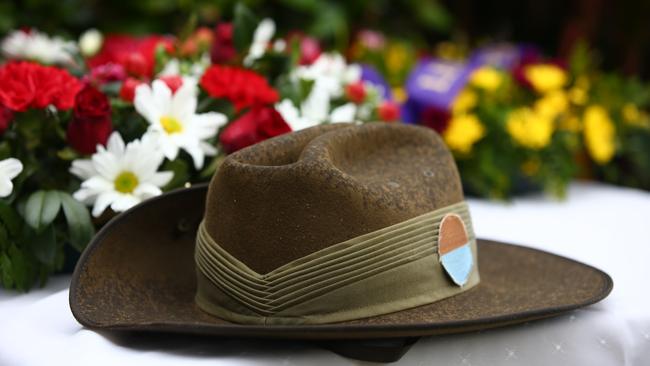Christopher Pyne: Australian election shadowed by global tensions
Global tensions, from the Solomon Islands to Ukraine, are casting a shadow over the Australian election, writes Christopher Pyne.
Opinion
Don't miss out on the headlines from Opinion. Followed categories will be added to My News.
Today we remember the fallen heroes of the countless military actions in which Australia has been involved since federation.
From the Boer War and then World War I, in which tens of thousands of Australians were senselessly killed, through to the longest and most recent military engagement of the Australian Defence Force in Afghanistan, which only ended in 2021.
Every life lost or broken by war is a tragedy.
Almost every Australian family has a connection to Anzac Day through their own service or the service of friends and family.
My own family saw four close family relatives go to World War I.
My great-uncle, Patrick Pyne, was killed at Gallipoli on the first Anzac Day on April 25, 1915. He was 19 years old. His older brother, Octavius Pyne, was killed at the Battle of the Somme on the Western Front a year later. Great-uncle William Pyne and my grandfather, Roy Evans, both fought in the war but both returned. Bill would go on to be a successful lawyer and mayor of Mount Gambier, while Roy would create RJC Evans and Co, an accounting firm that is now in its third generation of family ownership.
My father, Remington, was part of the Medical Corps in Korea and, while I never wore a uniform, I was privileged to be the minister for defence in the first Morrison government.
Incredibly, despite everything we know about the destruction wrought by conflict, Europe is witnessing its worst war since the end of World War II in 1945.
Vladimir Putin’s unprovoked assault of Ukraine puts him in the same pantheon of villains as his hero and creator of the now-defunct Soviet Union, Joseph Stalin.
The Ukraine-Russia War is filling our news services every day. The siege of Mariupol could well end in the starvation and murder of up to 1000 Ukrainians holed up in the Azovstal steelworks. If so, Putin will bear responsibility.
At the same time, the Solomon Islands government of Prime Minister Manasseh Sogavare has signed a security pact with the Chinese government.
China has been working hard to gain a foothold in the South Pacific for many years.
Alongside New Zealand, the US, France and Great Britain, Australia has, like a game of whack-a-mole, managed to keep a Chinese military presence at bay.
It remains to be seen how long this arrangement lasts. The Solomon Islands’ opposition is well organised and opposed to the agreement. The people of Malaita, which is the largest island in the Solomon Islands chain, are pro-Australian and pro-American. Regardless of how it turns out, it is an unhelpful development.
Both the war in Ukraine and the Solomon Islands-China agreement have thrust national security policy into the middle of our Australian election.

The last time national security featured so prominently in an Australian political context was the 2001 election. This could be our second “khaki election” in 20 years.
In 2001, the Howard government was well behind in the polls until the September 11 terrorist attack on the World Trade Centre in New York and the emergence of the MV Tampa carrying asylum seekers off the northwest coast of Western Australia. Both events played to the strengths of the Howard government in defence and border protection. In the election not long after, the Coalition increased its majority.
So it surprises me to see the Labor Party ramping up the rhetoric over the Solomon Islands. National security is not a traditional strength of the Labor side of politics. It is the preferred playing field, along with the economy, of the non-Labor parties.
Most voters’ default position is that the Coalition is a safer pair of hands in the areas of defence and foreign policy. Usually, Labor wants to drive a campaign towards health and social policy.
Hence, I assumed Labor started focusing on aged care, then the latest Mediscare campaign and the red herring of the cashless debit card for pensioners in the second week of the campaign.
But no, they seem to have decided to fight on the Coalition’s territory for a change.
This represents one of two things – either their polling tells them that voters are looking for an alternative view on national security, or their campaign focus is blurred and they are searching for a central theme.
If it’s the first, then that makes sense. I suspect it could be the second, because the Labor campaign so far has not seemed as cohesive as one would expect after three years since the last election to prepare for this one.
With four weeks to go, the election is still hard to pick. What seemed a lay down misère a month or so ago for the Labor Party, now looks like a real contest. It remains to be seen, of course.
The election in 1996 hung in the balance until the last few days and then the undecided voters fell overwhelmingly the Coalition’s way. Last election, exit polls showed 18 per cent of voters made up their minds in the last 48 hours before polling booths closed.
Labor remains the favourite to win.



